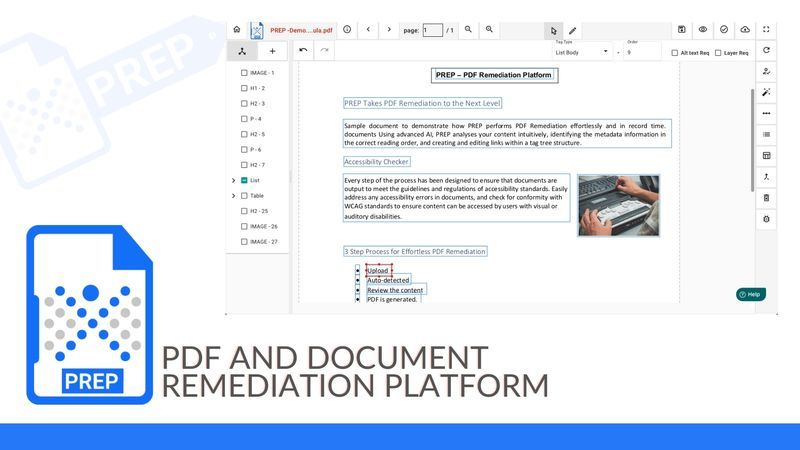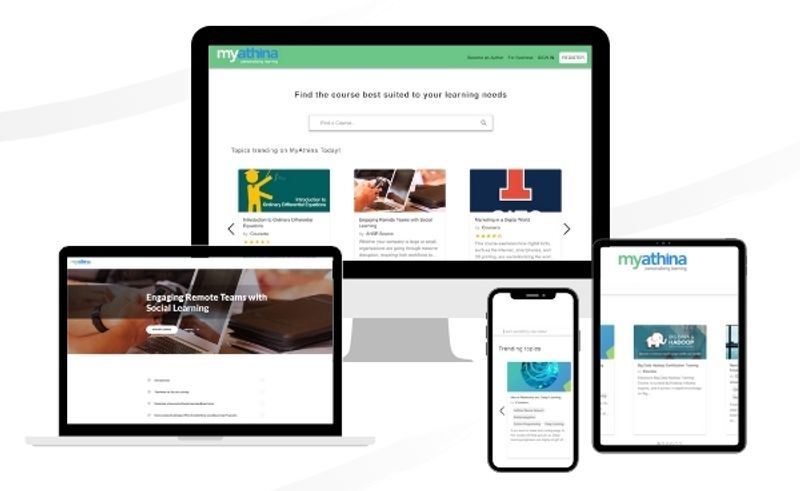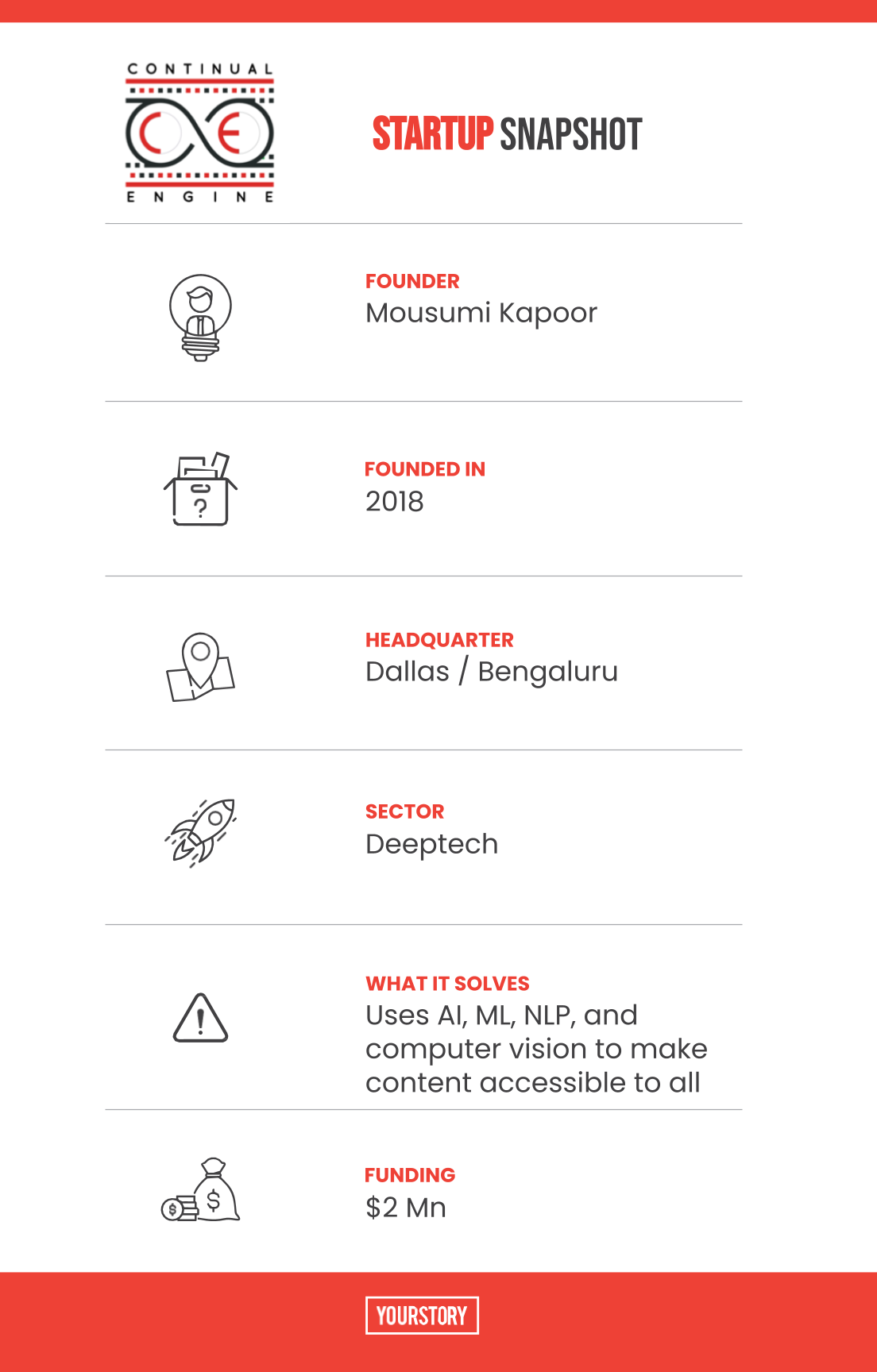Entrepreneur Mousumi Kapoor checks many boxes.
IIT grad, check. Female founder, check. Woman in STEM, check.
After spending nearly two decades in data and analytics roles at organisations in the US and India, Mousumi wants to check one more box — AI for Good.
‘AI for Good’ is a large global movement fostered by the United Nations. It involves using Artificial Intelligence and other deeptech to solve the most urgent challenges facing humanity. Mousumi’s startup Continual Engine is an extension of that vision.
Founded in 2018, Continual Engine is an AI-enabled education startup that uses deeptech to find simpler, affordable, and more effective ways to make learning content more accessible.
The Dallas-headquartered startup is building assistive technologies for the visually challenged and people with special learning needs.
Mousumi tells YourStory, “Our goal is to leverage computer vision, ML, and deep learning algorithms to create ‘continually learning engines’ that can deliver transformative learning solutions and solve meaningful problems at scale.”

Mousumi Kapoor, Founder and CEO, Continual Engine
The pain points it solves
Continual Engine was born out of the fact that traditional methods of offering and curating content were exclusionary to a vast number of people. Data from UsableNet suggests that nearly 217 million people in the world have moderate to severe vision impairment and 826 million live with near-vision impairment.
As a result, they face severe accessibility challenges and are often compelled to drop out of traditional learning curriculums. The problem is even more compounded because educational institutions and corporations find it challenging and expensive to make their content and programmes accessible.
That is what Continual Engine wants to solve.
As an accessibility solutions provider, the startup uses state-of-the-art technologies like deep learning, ML, computer vision, and NLP to automate the process of content discovery, curation, accessibility, and consumption and make it more precise, efficient, and cost-effective.
“We created a POC in 2017 and got initial funding of $500,000 to build out the solution. Many corporate CEOs thought it could be implemented in their organisations too,” shares the founder.

Continual Engine has impacted over 1 lakh learners and is projecting a turnover of $1 million in 2021
Continual Engine's AI-based products
Continual Engine launched its first product Invicta in May 2019.
Invicta is essentially an AI engine that auto-authors alt text for complex STEM and accounting images, including tables, charts, graphs, parabolas, and other diagrams.
It uses vision technology and deep learning to automate the tedious and manual process of making image content accessible, reducing the cycle time by 50-60 percent. “This was an area ripe for the usage of AI,” Mousumi says.
She elaborates,
“A normal screen reader converts text to audio, but it stumbles when it comes to complex STEM images. Even Google’s and Microsoft’s AI struggle with that. Invicta spits out detailed descriptions of graphs, charts, chemical structures, etc., and makes the content standardised and accessible.”
The startup claims that this solution has been lapped up by the world’s leading academic publishers, including Pearson, and top universities in the US. So far, Continual Engine has made over 100 STEM titles accessible at 50 percent cost benefits.

Invite and PREP have made over 100 STEM titles accessible at 50 percent cost benefits
The second product PREP was launched in March 2020.
PREP (PDF and Document Remediation Platform) is a proprietary AI-enabled tool that makes the process of remediation (making digital documents meet accessibility standards) simpler, quicker, and cheaper than existing solutions offered by Adobe, Equidox, CommonLook, and others.
Mousumi explains,
“PREP allows the remediation of high volumes of documents and pages in quick time and at attractive rates. The high degree of automation we have built reduces the remediation cycle time by 40-60 percent. We offer a quick turnaround in curating fully accessible PDF documents.”
PREP has found takers in higher educational institutions, startups, and corporates. Continual Engine hopes to find some use cases in government work too.
“PREP is simpler than Adobe, which is cumbersome for someone who doesn’t understand PDF remediation. Anyone who needs to digitise paper-based stuff can use the product,” states the founder.

myAthina curates 100,000+ courses from providers like LinkedIn Learning, Udacity, Coursera, EduRex
Continual Engine’s third product myAthina launched in February 2021.
It is an AI-driven Learning Ecosystem Platform (LEP) that aims to transform the digital learning journeys of individual learners, corporates, universities, and online certificate course providers, and change the way students engage with faculty.
The founder shares, “The rise of e-learning post the pandemic has accelerated digital adoption, and the need for powerful modern learning solutions. myAthina makes it easy for learning providers to go online, and for corporates to offer skill-based courses to their employees depending on their needs.”
Built as an antithesis to clunky traditional learning systems, myAthina curates more than 100,000 courses from providers like LinkedIn Learning, Udacity, Coursera, EduRex, etc. It is an “API-first architecture” that can adapt to client-specific needs.
Mousumi reveals that myAthina is finding a lot of acceptance in the Indian market, and has been adopted by fintech, retail, and content companies. “We map the most desired skills within the organisation. Corporates don’t have to tie up with individual service providers; we aggregate the best courses for them,” she says.

Business model and growth plans
Continual Engine services both B2B and B2C customers. Its solutions have been deployed at global publishing houses, higher-educational institutions, startups, and Fortune 500 companies across APAC, Europe, and North America. The startup also claims to have impacted over 100,000 learners to date.
India’s contribution to its business has been negligible so far, given the country’s lack of appetite for niche deeptech products.
However, that could be changing with the launch of myAthina, which has found customers like NiYo and other fintech and insurance companies in India.
Mousumi says, “We will expand myAthina in India, and are confident that revenues can sustain our growth. We will also launch the myAthina mobile app soon.”

The global assistive technology market is estimated to be worth $20.1 billion by 2023
Continual Engine has raised $2 million from undisclosed angel investors in the US.
The startup clocked revenues of $350,000 in 2020, and is projecting a turnover of $1 million in 2021, riding on the potential growth of its recent launches. While myAthina and PREP are pure-play SaaS products where customers pay an annual licensing fee, Invicta operates on an API and service-based model.
According to the founder, the US will continue to be the primary market for the startup, which also has a 30-member tech team in Bengaluru.
The global assistive technology market is estimated to be worth $20.1 billion by 2023, according to BCC Research. An estimated 700 million people face impairment of some kind. Hence, Continual Engine’s TAM is massive.
Mousumi sums up by saying, “Our biggest challenge so far has been access to data. We need [large amounts of] data to build our models. Working with customers, getting feedback, and tweaking the product is the right way to go.”
Edited by Saheli Sen Gupta
Link : https://yourstory.com/2021/07/ai-deeptech-startup-continual-engine-stem-content-accessible
Author :- Sohini Mitter ( )
July 28, 2021 at 06:45AM
YourStory



